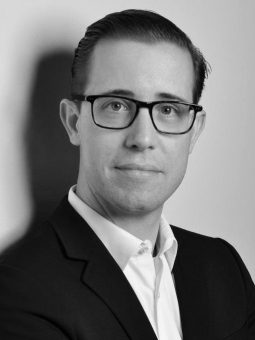We were able to talk to Lendico about previous successes, credit processes as well as the German FinTech and start-up scene. Many thanks to Dr. Dominik Steinkühler (Managing Director and co-founder), Christian Dolif (Director Risk) and Alexander Ruthemeier (Expansion Management) for the open interview!
Jens-Uwe Holthaus, zeb (JUH): How satisfied are you with the first five months since Lendico was launched in Germany?
Dr. Dominik Steinkühler (DS): Satisfied is always a difficult word. When you are satisfied, you get lethargic. I am not disappointed, but it still could be better. In the first five months, more than 20,000 users registered at Lendico.de and another 20,000 in the other four countries. Without much marketing for borrowers, we received credit requests of around EUR 85 million. For this reason, we can also apply strict criteria: We only allow 10% of the credit requests that pass our algorithm on Lendico.de. We also see that the time needed for achieving the financing commitment clearly decreases. Initially, we needed two weeks for ensuring full funding for projects, while it takes six days now. In the USA, Lending Club only needs a few seconds—we still need to work to convince investors in Germany before we can reach such values. But our work is already starting to bear fruit.
JUH: The business model of Lendico works without a banking license. Are you worried that the supervisory authorities may also subject such models to regulations in the medium term?
DS: We are not afraid of regulatory debate. Unlike banks, our risks are not concentrated on leverage in the balance sheet but are distributed on a one-on-one basis throughout the system. Thus, the risk is not comparable with the one of banks and, therefore, does not require regulations from that perspective. Moreover, the Lendico model is just re-opening the market for consumer credits in some countries, e.g. in Spain, where even good borrowers can hardly get funding from banks any more. Lendico generates added value for borrowers and investors. In this context, by the way, we would welcome regulations to a certain extent because this would push black sheep out of the market.
JUH: In your risk models, you can hardly include any historical data. How can investors be sure that your creditworthiness ratings are sound?
DS: We have much stricter scrutinizers than supervisory auditors: When investors cannot get good returns at Lendico, they will not invest any more and our monetary flows will run dry. In this respect, we trust in the market. We obviously have an utmost interest in pricing risks adequately. For this reason, we also employ senior staff who have worked for banks throughout their career to develop risk models for us. We attach importance to being able to tell our investors that our models are at least as good as those you get at a consumer bank.
Of course, we also point out the risks to our investors at Lendico.de. We emphasize again and again that diversification to as many loans as possible minimizes risks. When you look at Lending Club in the USA, you will see that none of the investors who invested in at least 600 loans ever made a loss. We also have to educate our investors in this respect.
Dr. Jörg Howein, zeb (JH): What happens if credits default?
Christian Dolif (CD): Up until today, we haven’t had any defaults. Nevertheless, we have certainly thought through the issue, not least because contracts have to contain related provisions in some countries. In case of defaults, credits are sold. That is more attractive for small and professional investors alike because repayment amounts are low for small credit tranches anyway. If you even extended them to 20 years, this would not be attractive any more. Therefore, it is better to have a painful ending with a write-down and one-time repayment of the recoverable amount.
JH: Could you please roughly describe the credit processes.
CD: The first hurdle for borrowers is the pre-check examining the borrowers with a view to potential fraud and credit risk. It is performed automatically for all borrowers. Then, data are obtained from credit agencies in the countries in question. In this context, we are testing many service providers and gather experiences about the data quality offered by individual agencies. In the next step, our underwriters play an important role. They are experienced people who have long-standing expertise in credit decision-making processes for retail customers from previous positions held at banks in the country concerned. They give the final approval for presenting a borrower on the platform.
Alexander Ruthemeier (AR): The local competence of the teams and, above all, the underwriters is of great importance for us. In the Arab region and Asia, we need radically new approaches to credit processes. In many cases, there are no credit agencies offering high-quality scores and reliable borrower identification. For example, it is very difficult to develop a scorecard in India as 50% of the population is unbanked. Still, there are services that enable us to score a high proportion of the population and ensure that we will have a low default rate in our target group. In those regions, the use of generally accessible data, especially from social media and e-commerce, plays an important role.
JH: Do you want to expand the purely online model of Lendico in future?
DS: For the time being, we will stick to the online model as we are familiar with it and good at it. In a longer-term perspective, I do not want to rule out that we also position ourselves in offline channels, which works quite well for Lending Club in the USA: In the United States, numerous swimming pools are built and pool builders provide good access to credit projects. That approach can be transferred to the German market and we will study that in future.
JUH: Do you plan to expand into further countries?
DS: We plan to serve a double-digit number of markets by the end of the year.
AR: We take a very close look at each country, analyze macroeconomic factors and perform many tests in advance. In addition, there are essential cultural challenges to be tackled in each country. For example, you would lose customers in many Arab and Asian markets if your model does not comply with Sharia rules. Based on local partnerships and our product expertise with regional know-how, we can avoid such mistakes.
JUH: Will I be able to make cross-border investments with Lendico in future?
CD: Today this is not possible. However, this is one of the product topics we are working on. In future, a German investor will also be able to fund credits in other Lendico markets through Lendico.de. Creditworthiness classes are already standardized across countries so that investors can assess a credit project in South Africa just like one in Spain. That is a requirement for the international expansion of Lendico.
JH: What do banks say when you talk to them?
DS: Competition stimulates business. Banks increasingly realize that they have to look at the fields of credit market places. Of course, volumes are still rather low even for Lending Club in the USA—USD 3 billion per year versus USD 4 trillion of consumer lending in the overall market. Banks, however, understand that, with a view to digitization, they should also keep an eye on these models and the application of new technologies.
JH: Which are the major digitization trends in financial services in your view?
DS: When I look at the value creation chain of banks, you can digitize almost all things that do not require a physical branch. Thus, there is a considerable number of smaller business models that can be developed. Infrastructure aspects are something that cannot be digitized. Bundesbank has a USP within its vaults, and digitization is also difficult for certain aspects of payment services due to existing infrastructures.
JH: Another issue: What is your view of the startup scene in Germany or the FinTech sector in comparison with the USA? What is the situation here?
DS: There is a sharp increase. Specifically with regard to financial services, professionalism is simply more advanced in the USA or UK than in the German market. The German market lacks products of a quality comparable to the Anglo-Saxon markets. Before Lendico, there was no significant P2P provider in Germany who ensured scoring—the decision about scores was left to the borrowers. From an investor perspective, that is similar to gambling. Lendico is the first credit market place that professionalized risk assessments. What is more, the German mindset is not really innovation-friendly. German savers still like it best to deposit their money in a savings account with a savings bank. That concept does not exist at all in the USA.
With regard to the startup infrastructure: A lot of capital is currently going to Berlin. Rocket Internet, the biggest internet incubator worldwide raised USD 2 billion of venture capital for its companies in 2013. Berlin is faring well as a startup location. At present, startups can quickly obtain six-digit seed rounds for a good idea. Berlin’s startups also demonstrated that it is possible to get more than EUR 10 million of VC. Of course, you have to cover a long period between the seed round and funding in a double-digit million range. Many startups are currently in that phase in Berlin. However, this topic is of less relevance for Lendico due to the affiliation with Rocket Internet.
JH/JUH: Thank you very much for the interview and, of course, good luck for Lendico’s global expansion!

